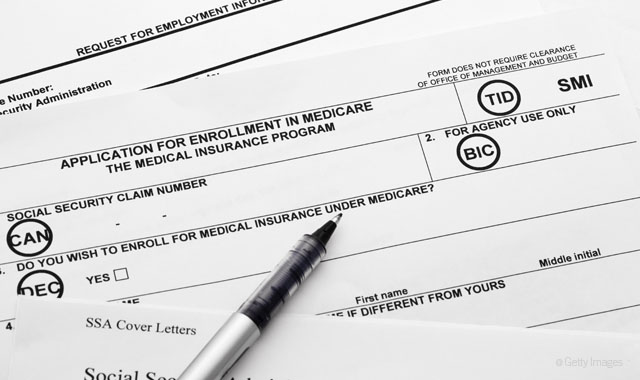What dentists need to know about the quickly approaching Medicare deadline
This article is an excerpt from the eBook "DentalCodeology: What Every Dentist Needs to Know about Medicare NOW" by Patti DiGangi, Christine Taxin, and Jan Palmer.

Most dentists are confused about their Medicare status. You ask each other what options are the best to pursue, with no one understanding the ramifications of their choices. Reading the Medicare website feels like swimming in peanut butter.
No outside advisor can give you the right answers. Each individual dentist needs to make a choice. The deadline is fast approaching. By June 1, 2016, all Medicare paperwork must be filed and approved. You can’t wait any longer.
Centers for Medicare offer help in January
The Centers for Medicare, through the National Government Services, Inc., is reaching out to help dentists understand your choices. A 90-minute, no-cost online session on Thursday, January 14, 2016, is open to anyone interested. This course will review the difference between:
· Enrolling in Medicare to provide services to beneficiaries CMS-855I
· Enrolling solely to order and refer
· Opting out of the Medicare program
· They will also explaining the difference between an active Medicare enrollment record to order and refer services to Medicare beneficiaries and explain the difference between participating and nonparticipating?
Click here to register for the January 14 online session.
More from the author: 6 CDT changes that will affect your practice in 2016
Doing nothing is a choice and action with major ramifications
In the past, dentists did NOT have to declare their status unless they performed medical services, such as sleep apnea, billing for CT scans, etc. Now EVERY dentist MUST MAKE A DECISION! Doing nothing is a choice. If you have not declared by either opting out or applying as an approved ordering and referring provider, any Rx written and referrals by you will not be covered by the beneficiary’s Medicare Part D coverage because you are not a recognized provider. Should you refer a patient to another provider for any service you perform that would be covered by Medicare, the service will not be covered. Medicare does not recognize you as the referring provider as opted-out or as enrolled in the registry, therefore there is no coverage.
Continue to page two for a scenario that could happen if you "do nothing"...
Scenario of ramifications of the “do nothing” mentality for ordering/registry: Rx for Nancy
Nancy, a 54-year-old female, has been a patient of record with Dr. Jones for many years. Based on her multiple health problems and hospitalizations, she is granted a Medicare disability. Nancy presents with a dental abscess, Dr. Jones writes a script for antibiotics. Nancy is notified by the pharmacy that she must pay out-of-pocket. Medicare will not cover either service because Dr. Jones has not declared any type of status with Medicare.
Outcome of this choice: Nancy is very upset about not having the ability to get the coverage to which she is entitled. She was also told by the pharmacy that Dr. Jones, her dentist, had a choice to get her covered and the dentist chose to do nothing. She is unhappy and surprised because it appears that her dentist did not really care about her. She and her family leave the practice and tell all their friends.
Additional reading: The top 10 things you need to know about ICD-10
What you need to know if you registered in the past
Some practitioners have registered for Medicare in the past and wonder, “Do I need to do something further?” The answer is yes. If you have previously filled an 855i application and received a Provider Transaction Access Number (PTAN), don't be fooled … you still have some work to do to make sure your PTAN is active.
Why? If you do not submit a claim to Medicare in 12 months, your PTAN will become inactive. You will not be recognized as an active provider, which could potentially be the same as the choice to “do nothing” (see above). All providers need to re-validate (pay again) every two years.
A pot of gold
There can be gold at the end of the rainbow … if you make the right choice for you, your practice, AND your patients!
Editor's Note: This article is an excerpt from the eBook DentalCodeology: What Every Dentist Needs to Know about Medicare NOW by Patti DiGangi, Christine Taxin, and Jan Palmer. It has easy-to-follow examples, links to forms and scenarios to help dentists make an informed decision as to what type of Medicare provider they need to be. The DentalCodeology series of books are easy-to-read, bite-size books for busy people to help prepare for the electronic health record transition (more than paperless) profitably by taking what can feel overwhelming into achievable steps.